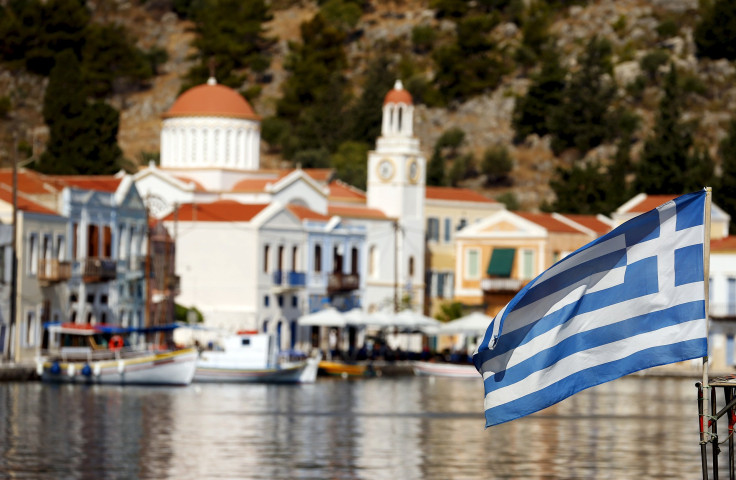Greek Referendum 2015: As Some Greek Expats Prepare To Return Home For Vote, Others Marvel At Mounting Crisis From Afar

BRUSSELS -- Overlooking her restaurant as it prepared to open for lunch, Maria Anagnos, a Greek expatriate living in Belgium, was distressed as she thought back to her native country’s past and its uncertain future. Her husband, folding napkins in the back, shook his head as he said, “This all could have been fixed in the 1980s.”
An upcoming referendum this Sunday in Athens will have decisive impacts on Greece’s future.
The vote is a highly politicized dimension of Greek debt negotiations, which reached a fever pitch at the end of June. Creditors attempted to strike an eleventh-hour deal with Greek Prime Minister Alexis Tsipras and Finance Minister Yanis Varoufakis in Brussels, but the Greek negotiating party announced last Saturday that they were withdrawing from negotiations. Instead, they would pose the question of accepting their creditors' tough bailout terms to the Greek people.
But as most see it, the referendum is no panacea to the country’s collapse. A kind of collapse has already taken hold.
As Greeks living outside of their home country stare into the widening maelstrom, a feeling of disillusion, pessimism and anger has arisen. Now, the country’s fate hangs in the balance of this Sunday’s referendum, the outcome of which could determine Greece’s future in the eurozone. Yet for many Greeks, the referendum has created more problems for an already troubled country.
“It’s a vote that has no purpose. It has divided the country in half and risks beginning a civil war. How can the government ask people to choose between two equally dismal options?” said Dimitris Georges of Ixelles, Belgium.
Some expatriate Greek citizens will return to their homeland for Sunday’s vote, where polls have indicated that 86% of the population will participate in the referendum. But for many expats like Georges, the cost, risks and dangers of returning to the Hellenic Republic outweigh the impact of a vote.
“If Greece leaves the eurozone, there will be utter chaos. I tremble just thinking about the country’s future,” said Anagnos of Brussels. She and her husband, who emigrated to Belgium in 1975, are not returning to their native island of Rhodes for Sunday’s election. “We went in May, when things were a bit more calm. It’s not as bad in Rhodes as in Athens,” she said. “But now, especially with this referendum? We’re afraid to even travel back.”
Polls on whether Greeks will vote for or against an agreement with its creditors to alter its bailout terms -- and as politicians in Brussels frame it, for or against Greece’s membership in the eurozone -- have proven indecisive. A poll released on Friday from the Greece-based Alco polling institute placed the "yes" camp barely ahead of the "no" camp, polling at 44.8 percent against 43.4 percent. At the time of the survey, 11.8 percent remained undecided, making Sunday’s vote all the more uncertain.
While it will be decisive for the country’s future, many Greek expatriates have found the referendum’s very premise to be senseless. Tsipras, who announced the referendum last Saturday, has been criticized frequently for his snap announcement of a hastily prepared referendum.
“The people should be given the opportunity to have their voices heard, but only under normal conditions. Tsipras hasn’t given the Greek people ample time to make up their minds,” said Eleni Arvanitis, who lives in New York City.
Nonetheless, the stakes are high. Greece’s exit from the eurozone could bring poverty to its people and havoc to European markets. The chief spokesperson of the European Commission, Margaritis Schinas, himself a Greek, announced at Thursday’s daily press briefing that he would be flying to Greece in order to vote, likely in favor of the proposal, and would not be addressing the ever-growing chorus of journalists in Brussels. “You will not have the nuisance of my company tomorrow, because I will be going [to Greece] to vote,” he said.
In Athens, social tensions have flared as the government imposed capital controls, capping withdrawals from ATMs to 60 euros a day. Markets have been on edge ever since Greece defaulted on a $1.73 billion payment to the IMF on Tuesday and capital outflows have increased exponentially.
“The entire situation is truly heartbreaking,” said Arvanitis. “But Tsipras should make clear that a ‘no’ outcome would only exacerbate the country's misery.”
Yet, with so much at stake, hopes for legitimate change through democratic process are meager. Arvanitis, who stays in touch with family and friends in Greece through social media, noted that agitation in favor of a "no" vote had reached a high point, particularly as political activism has become more important. “They do as they see and as they are told with misinformation and lies.”
But for those who have the luxury of living outside the crisis, what remains are dimming memories of a once prosperous past. Paintings of the idyllic Greek coastline and Greek goddesses, which dot the walls of Anagnos’ restaurant in Brussels, belie a greater sense of unease that has washed over Greece, Europe and their inhabitants.
“When Greece joined the European Community in 1981, money was everywhere. The Greeks were rich and could pay debts on time,” Arvanitis said.
“We lived like kings then. But no, this Sunday, je ne vote pas (I do not vote).”
© Copyright IBTimes 2024. All rights reserved.





















